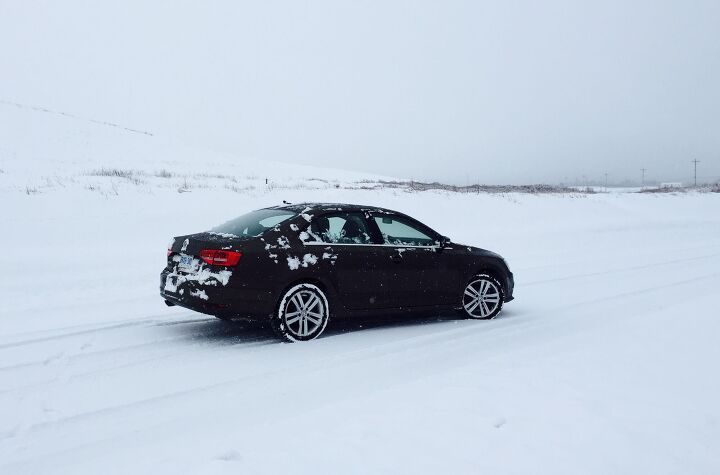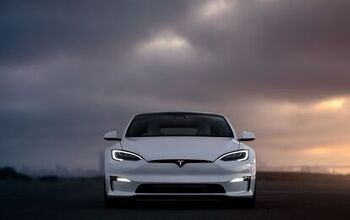Volkswagen Pleads Guilty, Canucks Hand Wolfsburg a Record Bill

While it absolutely pales in comparison to the fines levied in the United States, Volkswagen will still have to fork over a pile to appease the Canadians.
This week, the automaker pleaded guilty to 60 charges relating to its deception of regulators and consumers with emissions-rigged diesel vehicles. While $196.5 million sounds like small potatoes in this day and age, it happens to be the largest monetary fine for an environmental crime in the country’s history.
As CBC reports, it happens to be 20 times the previous maximum fine, which was levied on a mining company.
The penalty handed down by the Ontario Court of Justice is in response to the importation of 128,000 diesel Volkswagen and Audi vehicles over several years (ending September 2015), as well as 2,000 Porsche units.
“The proposed fine here indicates that a new era of environmental protection is upon us,” said Judge Enzo Rondinelli while handing down the court’s decision.
Volkswagen’s guilty plea was expected; at this point, with all the evidence against it — and having already faced the music in the U.S. and Germany — Volkswagen likely just wants to get it over with. Headlines from a scandal that started in the 2000s and broke half a decade ago aren’t something a company wants in the media. Not when there’s family-friendly CUVs to sell and much-hyped electric vehicles on the way.
Money handed over by VW will apparently be distributed, via a federal environmental fund, to various provinces and territories for local eco projects. As for the actual vehicles, VW has already taken care of those. An earlier settlement included the same buyback or fix options offered to American owners, at a cost of up to $2.39 billion.
Unlike in the U.S., Volkswagen’s Canadian sales weren’t nearly as buoyant in 2019. Brand sales sank 4.2 percent for the year.

More by Steph Willems
Latest Car Reviews
Read moreLatest Product Reviews
Read moreRecent Comments
- CEastwood I have a friend who drives an early aughts Forrester who refuses to get rid of it no matter all it's problems . I believe it's the head gasket eater edition . He takes great pains regularly putting in some additive that is supposed prevent head gasket problems only to be told by his mechanic on the latest timing belt change that the heads are staring to seep . Mechanics must love making money off those cars and their flawed engine design . Below is another satisfied customer of what has to be one of the least reliable Japanese cars .https://www.theautopian.com/i-regret-buying-a-new-subaru/
- Wjtinfwb 157k is not insignificant, even for a Honda. A lot would depend on the maintenance records and the environment the car was operated in. Up to date maintenance and updated wear items like brakes, shocks, belts, etc. done recently? Where did those 157k miles accumulate? West Texas on open, smooth roads that are relatively easy on the chassis or Michigan, with bomb crater potholes, snow and salt that take their toll on the underpinnings. That Honda 4 will run forever with decent maintenance but the underneath bits deteriorate on a Honda just like they do on a Chevy.
- Namesakeone Yes, for two reasons: The idea of a robot making decisions based on algorithms does not seem to be in anyone's best interest, and the thought of trucking companies salivating over using a computer to replace the salary of a human driver means a lot more people in the unemployment lines.
- Bd2 Powertrain reliability of Boxer engines is always questionable. I'll never understand why Subaru held onto them for so long. Smartstream is a solid engine platform as is the Veracruz 3.8L V6.
- SPPPP I suppose I am afraid of autonomous cars in a certain sense. I prefer to drive myself when I go places. If I ride as a passenger in another driver's car, I can see if that person looks alert and fit for purpose. If that person seems likely to crash, I can intervene, and attempt to bring them back to attention. If there is no human driver, there will probably be no warning signs of an impending crash.But this is less significant than the over-arching fear of humans using autonomous driving as a tool to disempower and devalue other humans. As each generation "can't be trusted" with more and more things, we seem to be turning more passive and infantile. I fear that it will weaken our society and make it more prone to exploitation from within, and/or conquest from the outside.


































Comments
Join the conversation
$196 million Canadian $ is pretty much "pocket change" for VW..
The Canadian Automotive Market - As Big as California™